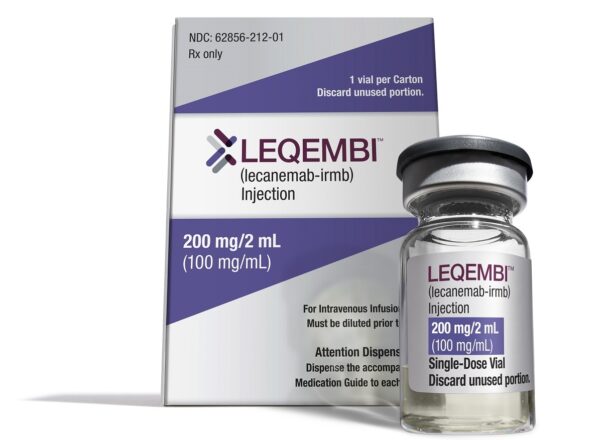
The FDA has accepted Eisai’s application seeking full approval for its Alzheimer’s disease drug, setting a summer date for a regulatory decision that could smooth the path for insurance companies to begin coverage for the product.
But before the FDA decides whether the accelerated approval of Eisai’s drug, Leqembi, should be converted to a full regulatory approval, it wants to hear from an advisory committee of independent experts. The meeting date for this committee has not yet been set. The FDA’s target date to issue a regulatory decision on Leqembi is July 6.
Leqembi won accelerated FDA approval in January based on Phase 2 data showing that the antibody drug cleared away beta amyloid plaques on the brains of patients with Alzheimer’s patients. This surrogate endpoint is an indication that the drug might be working. Accelerated approvals based on surrogate endpoints get a drug to market faster, but they also require companies to conduct an additional confirmatory study in a larger group of patients to further demonstrate a drug’s safety and efficacy. A Phase 3 clinical trial of Leqembi serves as that drug’s confirmatory study.
Last November, Tokyo-based Eisai presented detailed Phase 3 results during the Clinical Trials on Alzheimer’s Disease conference. Data from the placebo-controlled Phase 3 test showed that patients treated with the drug experienced a 27% reduction in clinical decline compared with those given a placebo. These results are the basis for the application seeking full approval, which Eisai filed with the FDA on the same day the drug was awarded accelerated approval.
Eisai set a $26,500 annual price for Leqembi, which is less than the heavily discounted $28,000 annual price for Aduhelm. But Leqembi’s commercialization is hindered by the lack of insurance coverage. The Centers for Medicare and Medicaid Services typically sets the tone for coverage of new drugs, and the agency is not covering Leqembi for Medicare beneficiaries who are not enrolled in a clinical trial. CMS established that policy for the entire class of amyloid-targeting antibody drugs following the speedy FDA nod for Aduhelm, the Alzheimer’s drug from Eisai partner Biogen.
Late last month, CMS said the policy would remain unchanged because no evidence was yet available to warrant reconsidering it. But the agency said it would review new evidence that could support a reconsideration of the policy. FDA approval based on evidence of clinical benefit could provide such evidence, CMS said. Following the announcement of Leqembi’s accelerated approval in January, Eisai Chairman and CEO Ivan Cheung said the company will ask CMS to go through the Phase 3 clinical trial data with the FDA in order to open up patient access to the drug as soon as possible upon its receipt of full regulatory approval.
Leqembi was developed under a multi-drug alliance between Eisai and Biogen dating to 2014. While Biogen took the lead in the clinical development and regulatory process for Aduhelm, Eisai is the leader for Leqembi. The companies share in the commercialization of both products.
Photo by Eisai










